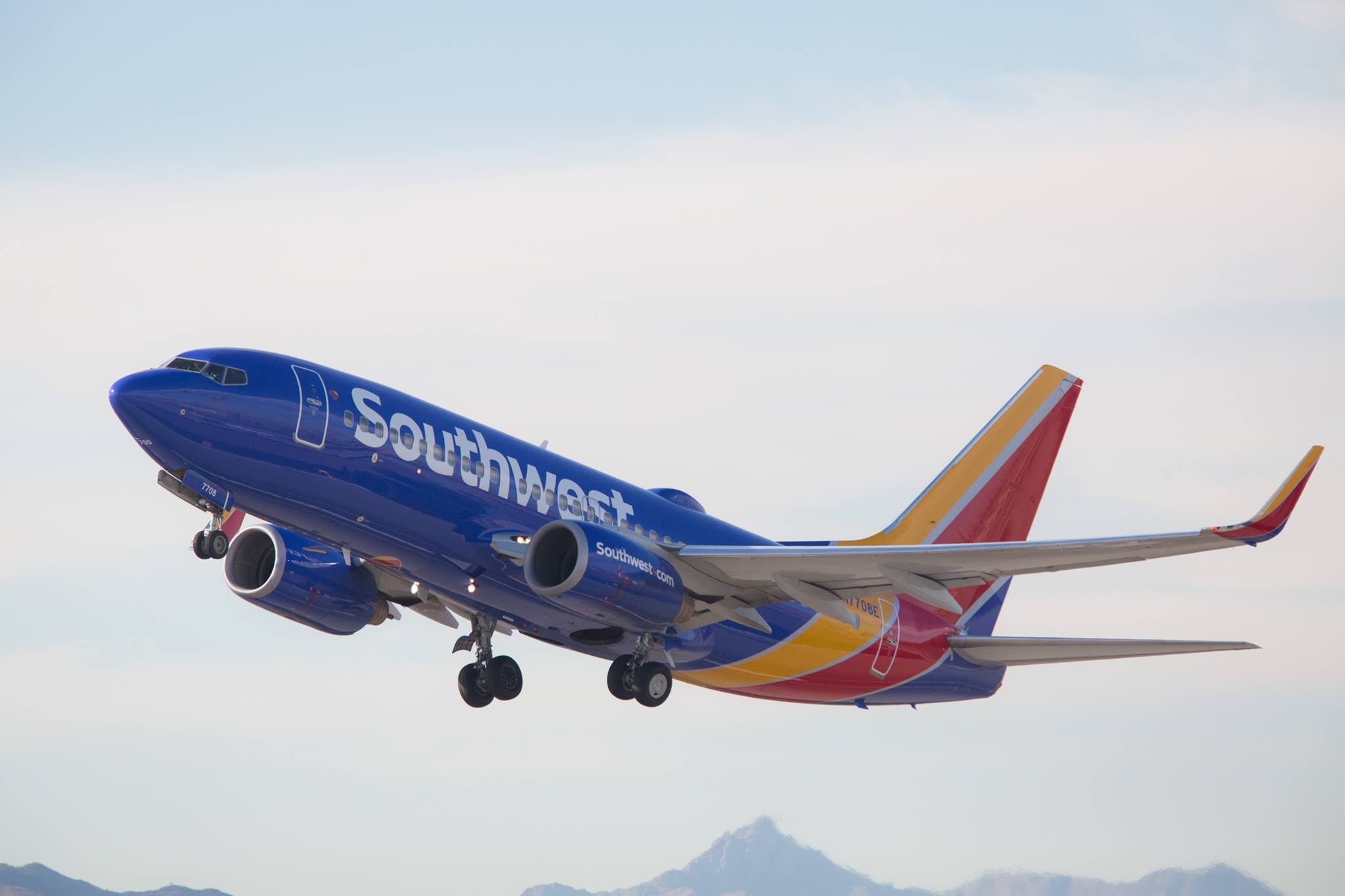Dallas Love Field is the closest airport to downtown Dallas. It has a beautiful new terminal that has gotten great reviews. And passenger traffic is up more than 50% year-to-date, following the repeal of the Wright Amendment: a federal law that for decades barred most long-haul flights at Love Field. So you might think that everything's going great for Dallas' most convenient airport.
You'd be wrong.
Virgin America (VA +0.00%) CEO David Cush complained last month that Love Field was its worst airport in terms of delays due to overuse. That could be about to get worse, because Southwest Airlines (LUV +1.05%) -- by far the airport's biggest airline -- just added more flights last weekend. And Delta Air Lines (DAL 1.06%), the airport's third occupant, wants to grow at Love Field, too.

Southwest Airlines dominates traffic at Love Field. Photo: The Motley Fool
This squabbling over limited airport capacity has already sparked lawsuits -- and threats of more to come. And as of last week, the city of Dallas has to deal with yet another headache: an FAA investigation into the situation.
Lawsuits all around
Most of the current problems at Love Field can be traced back to the 2006 compromise that led to the Wright Amendment's repeal. In return for opening the airport to long-haul flights, Congress mandated that the airport would be capped at 20 gates, down from 32 gates previously.
Right now, on peak days, the airport has 180 departures on Southwest Airlines, 19 on Virgin America, and five on Delta Air Lines -- plus two on tiny SeaPort Airlines, which is leaving Love Field next month. That puts gate usage at more than 10 departures per day. Generally, that's considered the absolute maximum feasible level of gate usage, but Virgin America's Cush argues that this is already too much to allow reliable operations.

Virgin America says that Love Field is already operating beyond capacity. Photo: Virgin America
The sniping has centered on Southwest and Delta. Southwest has leases (or subleases) for 18 of the airport's 20 gates. The other two are leased by Virgin America. That leaves Delta as the odd one out. It has been temporarily using one of Southwest's gates for its five daily departures, but Southwest wants to use whatever capacity is available for its own flights.
As a result, the city of Dallas has sued every airline that serves -- or has expressed interest in serving -- Love Field. It also sued the FAA and Department of Transportation. The city argues that a federal court should decide once and for all how the scarce capacity at Love Field should be allocated.
In response, Southwest Airlines filed for a temporary restraining order against Delta to kick the latter out of Love Field. Since Delta's contractual right to use Southwest's gates was scheduled to expire on July 6 -- the license agreement was later extended to give the courts a chance to decide the case -- Southwest argued that Delta had no right to "trespass" on its gates thereafter. Delta responded by threatening its own legal action.

Delta has fought tooth-and-nail to stay at Love Field. Photo: The Motley Fool
In the most recent twist in this saga, the FAA sent a letter to the city of Dallas last week stating that it is investigating the city. The FAA claims that Dallas has breached its duty to allow Delta to continue operating at Love Field, and that as a consequence it could lose all of its FAA grants.
You could see this coming from a mile away
The morass of lawsuits and investigations surrounding Love Field's operations is sad but not surprising. All the way back in 2006 -- when Congress proposed to limit Love Field to 20 gates -- the wording of the bill was hotly contested over potential antitrust issues. Furthermore, a DOJ memo at the time asserted that limiting the airport to 20 gates would be a clear-cut antitrust violation.
Indeed, it's ironic that everybody is gathering around to sue (or investigate) the city of Dallas. The city is in a complete bind due to the competing interests at play.
Southwest Airlines and Virgin America have leases for 18 gates and two gates, respectively. If they want to use these gates -- which they are paying for -- to the fullest extent possible, they seem to have a legal right to do so. But with federal law preventing Dallas from adding any more gates, the city must therefore evict Delta -- which both Delta and the FAA claim is not permissible.
In short, the city of Dallas appears to be bound by conflicting laws. There is no obvious way for it to abide by the 20 gate cap without either depriving Southwest and/or Virgin America of their property rights or violating federal regulations by booting Delta out of the airport entirely.
This is a legal mess nine years in the making. All three airlines and the city of Dallas are anxiously awaiting the upcoming court date in late September that may finally provide some clarity on a permanent allocation of Love Field capacity.






